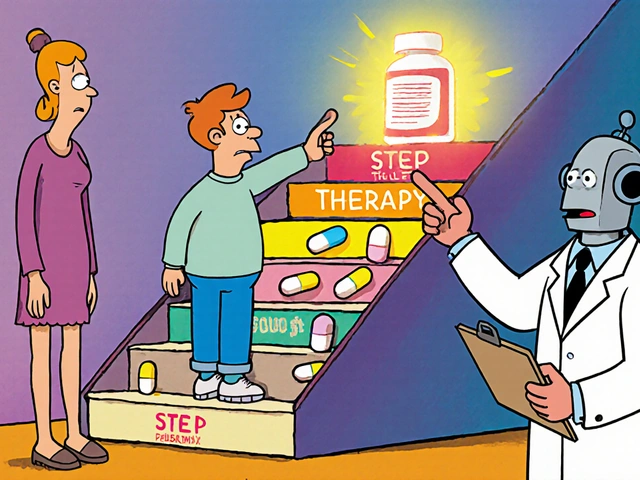Meditation: Simple Habits That Help Stress, Sleep, Pain, and Focus
Want less stress, better sleep, or a calmer head before a doctor's appointment? Meditation is one of the easiest tools to start. You don't need special gear or hours each day. Small, consistent practices can change how you react to pain, anxiety, and the daily grind.
Why try meditation now? Because it trains your attention. That matters when you’re dealing with chronic pain, high blood pressure, or mood swings. It won’t replace medicine, but it can make treatments work better by lowering stress, improving sleep, and helping you stick with a care plan.
Quick daily routines you can actually keep
Start small. Try a 3-minute breathing check each morning: sit, close your eyes, breathe in for 4 seconds, hold for 1, breathe out for 5. Count breaths if your mind wanders. Do this every day for a week and you’ll notice calmer pauses between thoughts.
Five-minute body scan before bed helps sleep. Lie down, focus on your toes, then move attention slowly up the body. Notice tension and breathe into it. No need to fix anything—just notice. This practice often reduces racing thoughts and makes it easier to fall asleep.
Ten-minute guided sits work well if you prefer direction. Use a free app or a short YouTube clip. Look for a guide that uses plain language and reminds you to return to the breath when you drift off. Consistency beats length—ten minutes daily is better than an hour once a week.
How to fit meditation into medical care
If you take medication for blood pressure, pain, or mood, meditation can be a helpful add-on. It can lower stress-related spikes in blood pressure and reduce the emotional impact of chronic pain. Tell your doctor you’re practicing meditation—don’t stop or change meds without their OK.
Use meditation before doctor visits to calm nerves and remember your questions. Try a short breathing exercise in the waiting room. You’ll think clearer and get more from the appointment.
When pain flares, combine breathwork with movement. Slow breaths plus gentle stretching often reduces flare intensity and helps you avoid overusing pain meds. For anxiety or depression, pair daily meditation with any therapy or medication your provider recommends. Meditation helps create space between feeling and reaction.
Common problems and quick fixes: mind wandering—label thoughts and return to breath; restlessness—stand and do a walking 2-minute focus; sleep issues—move evening practice earlier and cut screens an hour before bed.
Want tools? Try short guided sessions, timer apps with bell sounds, or breathing timers. Join a local group if you need accountability. The key is small steps and steady habits.
Meditation isn’t a cure-all, but it’s a low-risk, low-cost way to feel more in control. Start with one simple practice today and build from there. You’ll likely notice small wins within a week—less reactivity, better sleep, clearer thinking—and those add up fast.





